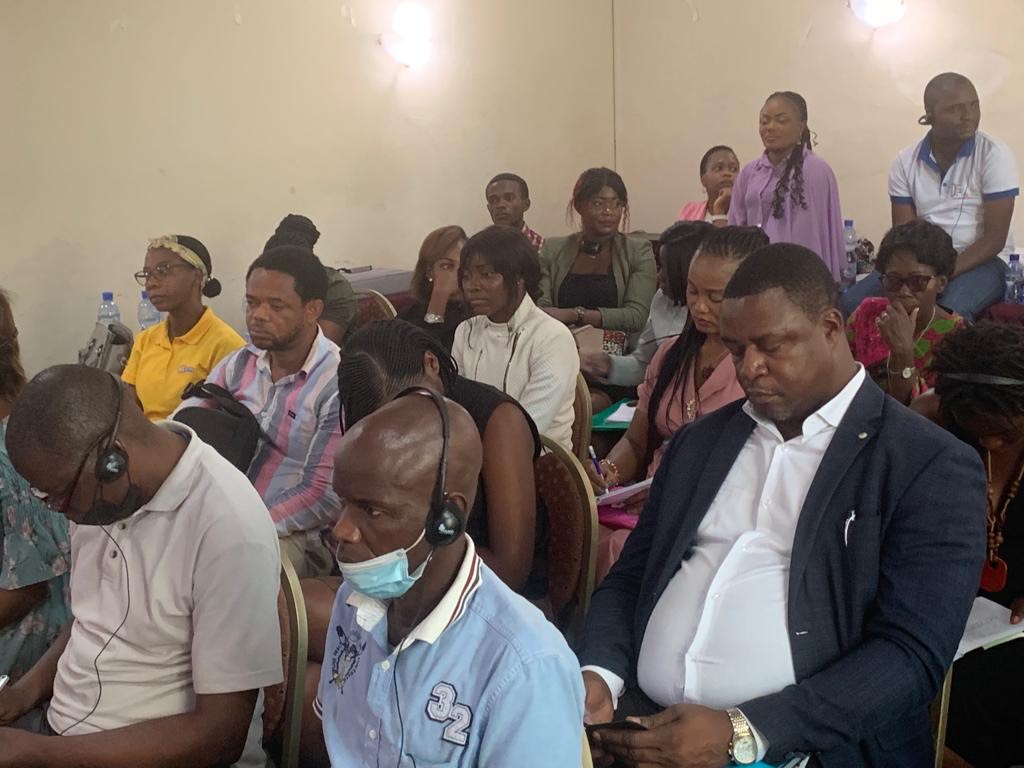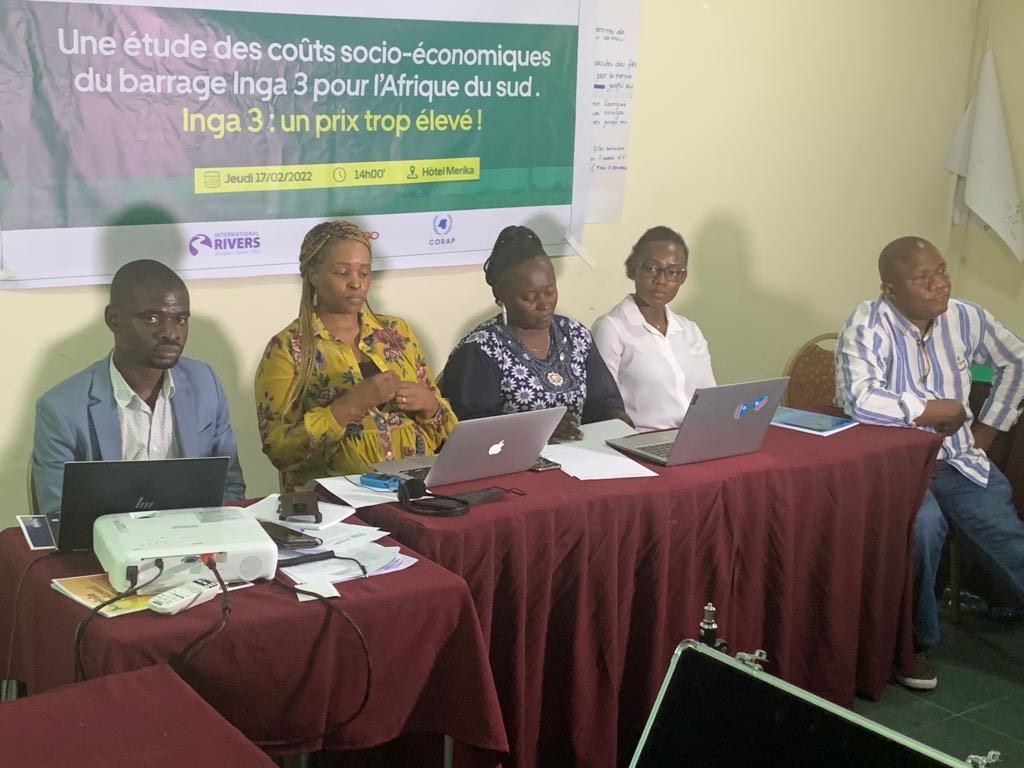By: Aqeelah Hassen, Africa Program
On Thursday the 17th of February International Rivers with partners Womin, Femmes Solidaires (FESO) and Coalition des Organisations de la Société Civile pour le Suivi des Réformes et de l’Action Publique (CORAP) launched the Inga too High a Cost report in Kinshasa, Democratic Republic of Congo.
The report assesses the socio-economic impacts of the Inga 3 dam, on South African citizens and particularly on women. It also looks at the commercial case for the dam, comparing it on price with alternatives and suggests that Inga 3 will deliver poor outcomes for South Africans at a very high price. While the report focuses largely on the impacts of importing power from Inga 3 for South Africa, the launch provided an opportunity to explore the negative impacts the proposed project would have in the DRC.
Mignonne Mbombo, Programs Coordinator at FESO explained that there is the ever present risk of social conflict and human rights issues due to displacement by the project in the DRC. She goes on to point out that Energy from Inga 3 would be sent to the mining sector in Katanga or exported to South Africa, with only around 20% allocated to residents in Kinshasa and surrounds.
“Within the DRC, energy from Inga 3 is going to the places that already enjoy relatively high levels of electrification. Overall, 19% of people in the DRC have access to electricity but in Kinshasa the rate is as high as 80%. So although the 20% allocation from Inga 3 may have positive social impacts for Kinshasa residents and some surrounding areas, it will likely have limited to no impact on the majority of the DRC population in need.”
The launch highlighted once more that Inga 3 is a bad idea for both South Africa and the DRC.
International Rivers Africa Program Director Siziwe Mota concludes “The afternoon was a success, a number of news outlets attended and we expect some local media pieces about the report in the DRC which will further illuminate the cons of the proposed Inga 3 project for both the DRC and South Africa.”
LE 23 MARS 2022
Par : Aqeelah Hassen, programme Afrique
Le jeudi 17 février, International Rivers, avec ses partenaires Womin, Femmes Solidaires (FESO) et la Coalition des Organisations de la Société Civile pour le Suivi des Réformes et de l’Action Publique (CORAP), a lancé le rapport intitulé Inga 3 : un prix trop élevé (Inga 3 Too High a Cost) à Kinshasa, en République Démocratique du Congo.
Le rapport évalue les impacts socio-économiques du barrage Inga 3 sur les citoyens sud-africains et en particulier sur les femmes. Il examine également l’aspect commercial du barrage, en le comparant en termes de prix avec des alternatives et suggère qu’Inga 3 donnera de mauvais résultats pour les Sud-Africains, et ce à un prix très élevé. Bien que le rapport se concentre en grande partie sur les impacts de l’importation d’électricité d’Inga 3 pour l’Afrique du Sud, le lancement a été l’occasion d’explorer les impacts négatifs que le projet proposé aurait en RDC.
Mignonne Mbombo, coordinatrice des programmes à FESO, a expliqué qu’il y a le risque toujours présent de conflit social et de violations des droits de l’homme en raison du déplacement des communautés par le projet en RDC. Elle poursuit en soulignant que l’énergie d’Inga 3 serait envoyée au secteur minier du Katanga ou exportée vers l’Afrique du Sud, avec seulement environ 20% alloués aux résidents de Kinshasa et ses environs.
« En RDC, l’énergie d’Inga 3 ira aux endroits qui bénéficient déjà de niveaux d’électrification relativement élevés. Globalement, 19% de la population en RDC ont accès à l’électricité, mais à Kinshasa, ce taux atteint 80%. Ainsi, bien que l’allocation de 20% d’Inga 3 puisse avoir des impacts sociaux positifs pour les résidents de Kinshasa et certaines zones environnantes, elle aura probablement un impact limité ou nul sur la majorité de la population de la RDC dans le besoin. »
Le lancement a souligné une fois de plus qu’Inga 3 est une mauvaise idée tant pour l’Afrique du Sud que pour la RDC.
La directrice du programme Afrique d’International Rivers, Siziwe Mota, conclut : « L’après-midi a été un succès. Un certain nombre de médias étaient présents et nous nous attendons à une couverture médiatique locale sur le rapport en RDC, qui mettra davantage en lumière les désavantages du projet Inga 3 proposé, tant pour la RDC que pour l’Afrique du Sud. »
Related articles/Articles connexes
CORAP is concerned “about the negative impacts” of the INGA 3 project on the environment and social.


